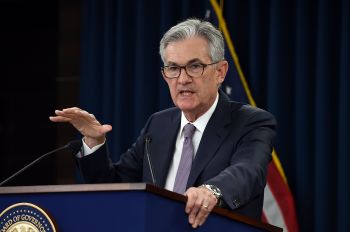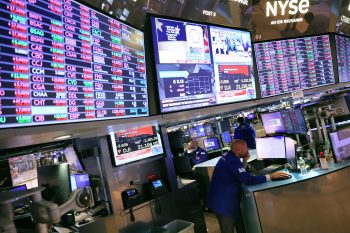Day-to-day cash flow is freezing up
TEXT OF STORY
KAI RYSSDAL: News that the $700 billion might not come all at once didn’t do any overall market damage today. But just like when you and I run short between paychecks, folks who need a steady cash flow to do their Wall Street business aren’t all that happy.
Over the past couple of weeks the interest rate banks charge each other for short-term loans has shot up dramatically. Banks are afraid to lend, as we’ve said, because they’re afraid they’re not going to be paid back. Now, money-market rates are soaring as well. Those are the rates companies all over the world use to borrow for their day-to-day operations.
From New York, Marketplace’s Jeremy Hobson reports.
JEREMY HOBSON: You don’t hear much about money markets — until they freeze up.
MILTON EZRATI: If these markets don’t unfreeze, it is probably the single biggest threat to the economy from this crisis, this financial crisis.
Milton Ezrati is a senior economist and strategist for Lord, Abbett and Company.
EZRATI: Most of the economic activity in the United States is carried on through these short-term instruments. Most of the working capital for corporations is financed through these short-term instruments. So if this market freezes up or becomes difficult or is too costly, it can really put a crimp in the economy.
Just as banks borrow money from each other at low interest rates, big U.S. companies rely on the money market for cheap, short-term loans. They use the money for everything from buying inventory to paying employees. Right now, the loans have gotten too expensive because lenders are scared they won’t be paid back.
Investors and corporations are pulling cash out of money market funds, which back these loans. And that’s brought the short-term lending market to a grinding halt, says Guy Lebas. He’s chief fixed-income strategist at Janney Montgomery Scott.
GUY LEBAS: Institutions aren’t willing to make loans. And that’s what’s really troubling. That the sort of entities that need cash in the markets, and even ones that need it for day-to-day operations, are having trouble getting it and are paying up a great deal.
Lebas says what’s needed to unfreeze the markets is confidence. He says the $700 billion government bailout will probably do the trick. The problem, he says, is that it may be three months before the money reaches the markets and U.S. companies may not be able to wait that long.
In New York, I’m Jeremy Hobson for Marketplace.
There’s a lot happening in the world. Through it all, Marketplace is here for you.
You rely on Marketplace to break down the world’s events and tell you how it affects you in a fact-based, approachable way. We rely on your financial support to keep making that possible.
Your donation today powers the independent journalism that you rely on. For just $5/month, you can help sustain Marketplace so we can keep reporting on the things that matter to you.


















